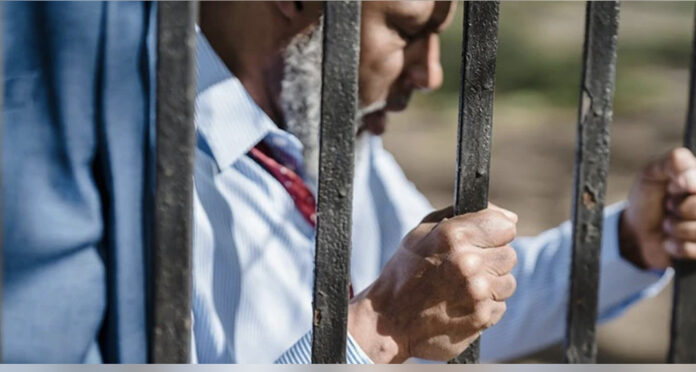Lack of understanding about the inhumane treatment of Black men under the Mental Health Act is leading to detention rates three times higher among this demographic than their white counterparts – and the situation has not changed in over 20 years.
These are the findings of a study which, for the first time ever for a review of its kind, included the voices of the Black African Caribbean community who have experienced detention under the Mental Health Act and/or supported their loved ones through it.
Led by researchers at Manchester Met, the study confirmed that Black men have longer hospital stays, are more frequently re-admitted, are more likely to be unhappy with their treatment, and are more often detained – taken into hospital against their will – through the criminal justice system than any other demographic.
During detention Black men are three times more likely to be subject to coercive practices such as excessive use of force and being physically restrained, including being pinned face down on the ground and forced to take medication. These experiences lead to long term trauma for the men and their families.
Black males are disproportionately affected by detention rates under the current Mental Health Act. Statistics in England from 2023-2024 show that 242.3 per 100,000 Black people were detained under the Mental Health Act in this year, in comparison to 68.4 per 100,000 of white people. They are also ten times more likely to be placed under a Community Treatment Order.
For Black African Caribbean men, this can lead to higher rates of unemployment, a criminal justice referral, a perceived risk to others, and a diagnosis of a psychotic disorder. Data shows that over two times as many Black people with mental ill health die in custody than any other demographic. This is due to several factors including systemic racism and epistemic injustice in psychiatry.
This study was part of a wider National Institute for Health and Care (NIHR) funded project set to influence reforms of the 40-year-old Mental Health Act, currently under Government review with a draft Mental Health Bill which aims to tackle mental health inequalities, including the disproportionate detention of people from minoritised communities.
The comprehensive systematic review published in PLOS Mental Health pulled together research from 34 studies and, for the first time, included the voices of the Black African Caribbean community who have experienced detention under the Mental Health Act and/or supported their loved ones through it.
A series of themes were created and discussed, including complex mental health journeys; assumptions around diagnosis; culture, spirituality, and religion; and power and control.
The results were interpreted as ‘screaming silences’ regarding the history and impact of institutional discrimination and racism from police, mental health services, and academia historically known for doing research on and to Black communities, as opposed to for and with. This, and the dire consequences of these silences, has been known for over two decades but is rarely discussed in the literature.
The academic review included the identification of over 15,000 research papers held within databases, which were reduced to 34 papers for inclusion. Findings included the fact that Black men who were detained are more likely to be from a deprived area, detained involuntarily by the police, less satisfied about the way they were detained than other ethnic groups, more likely to be diagnosed with psychosis, and more likely to be re-admitted to inpatient care.
Dr Kim Heyes, a co-applicant of the project and Senior Lecturer in Health and Social Justice at Manchester Met, said: “Our systematic literature review shows how research papers report the same issues repeatedly – Black males’ needs and treatment preferences are ignored and silenced both in the literature and in practise and they are experiencing significant inequalities that need to be addressed systemically.
“Our study shows that the over-representation of Black men in mental health detention comes at a huge cost and needs urgent attention. When a Black man experiencing mental distress is approached or detained by the police, this anxiety could manifest as actions perceived as aggressive.
“When the individual then enters psychiatric services, the fear is once again perceived as aggression – often perpetuated by restraint, forced medication and isolation. This inaccurate perception of aggression is a result of negative stereotypes of Black men and omits the fight or flight trauma response that Black and African Caribbean men report experiencing. stemming from a real and legitimate fear of dying in mental health care.
“Person-centred mental health care must span beyond ethnicity. We hope that presenting the findings from the existing literature alongside the voices of those with lived experience is a way of changing the narrative, exposing the silences, and leading to much-needed mental health reforms.”
Dr Alina Haines-Delmont, Reader in Mental Health at Manchester Met and co-lead on the project, added: “The experiences of Black men detained under the Mental Health Act has not changed in any meaningful way, at least, not in the last 20 years. It will take some radical re-imagining to re-humanise the detention process and co-create a healthcare system that leads with ‘the most supportive approach’ to bringing health and healing with and for this community.”







